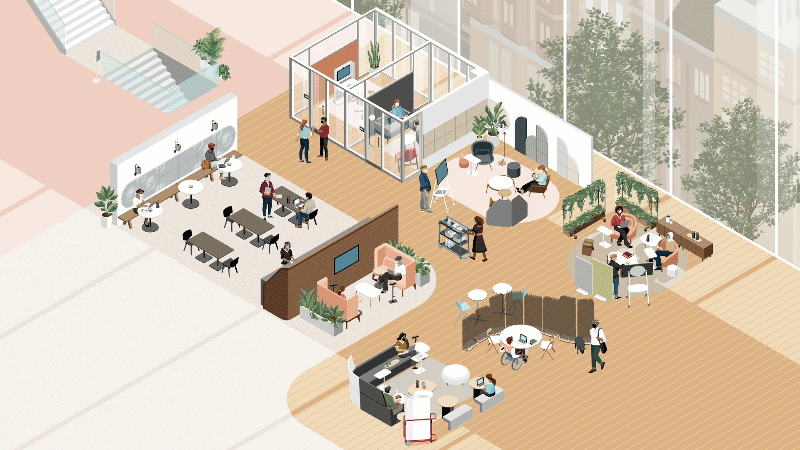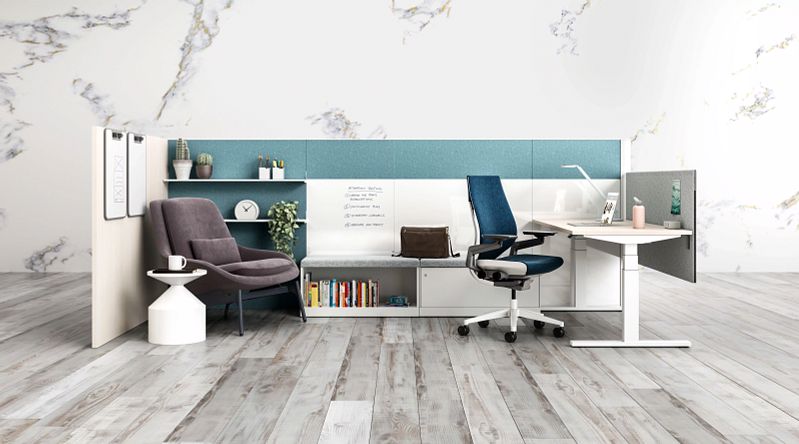For many, workplace culture is a top priority and concern as uncertainty about the future of the workplace remains nearly two years into a global pandemic. We are inherently social creatures, so it is no surprise that while remote work is great, it is just not the same. Nor do we know when a sense of normalcy, which is likely long gone, will return. It’s been too long. Too much time has passed.
Workplace culture still matters
We’re now focused on seeking balance between what is safe and getting work done. For leaders, this means embracing the very nature of work today and being intentional about connection to create and sustain culture in a new way. Luckily, there is no shortage of tools and techniques to stay connected and keep those working relationships strong.
Workplace culture remains important because it impacts workers regardless of their physical location. A central workplace can help amplify culture and ensure remote workers are included and also contribute to the culture. By extension, workers need to understand how to leverage the tools and ensure all parties feel included, valued and safe. This dynamic creates conditions for empathy and understanding—fuel for a healthy and positive culture.
Bloomberg Businessweek chatted with Matt Mullenweg, the founder and CEO of the web software maker Automattic and someone accustomed to running a distributed organization. Mullenweg shared this sentiment about workplace culture: “It’s really about understanding your colleagues, communication, empathy.”
Flexibility is the name of the game
As the nature of work continues to evolve, creative solutions are in play that allow flexibility when it comes to an office environment. The Atlanta Journal Constitution reports that demand for coworking spaces is rebounding. Given the state of the pandemic, there is still much uncertainty and businesses are hesitant to lease large spaces when few people are in the office on a daily basis. Coworking spaces offer a unique solution and much flexibility, while avoiding the cost of a space you aren’t using.
For those looking to rework their space, flexibility is the name of the game. We anticipate needs will change as the state of the world and work continue to evolve. We also know the importance of space when it comes to getting work done and creating balance between work and home. Not to mention, the need to socialize and create meaningful connections.

Meeting businesses where they are at
In the name of workplace culture and personal sanity, we offer solutions that meet businesses and their employees where they are at, but with the flexibility to adapt to where they will be in the future too. This means spaces that can easily adjust based on the state of things. Spaces with the flexibility for individual work and small group meetings. And financing to decrease risk, while offering the opportunity to evolve to meet the needs of the moment and the team, in turn driving workplace culture.
For those who aren’t heading into some type of office regularly, connection at work requires intention. After yet another Zoom meeting, it can feel hard to get on video to catch up with a colleague but this essential activity must be the expectation. The boundaries between work and home are often blurred in a remote work environment. When in doubt, show you trust your team, cultivate opportunities for connection and always over-communicate.
For additional reading, we suggest –
- Bloomberg Businessweek’s report about being in the office for the sake of company culture, not productivity.
- CNBC reports return-to-work dates are history and instead experts urge businesses to set clear expectations about what the return to the office will look like (when the time is right) and understand the needs and desires of employees too.


